Researchers Make Connections at 26th Annual Mind Brain Research Day

(Photo credit: Peter Goldberg)
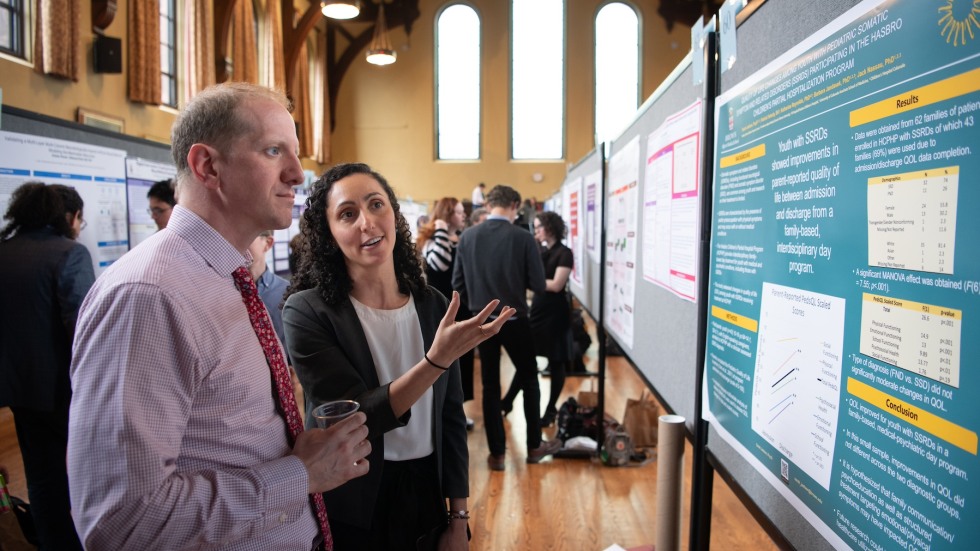
(Photo credit: Peter Goldberg)
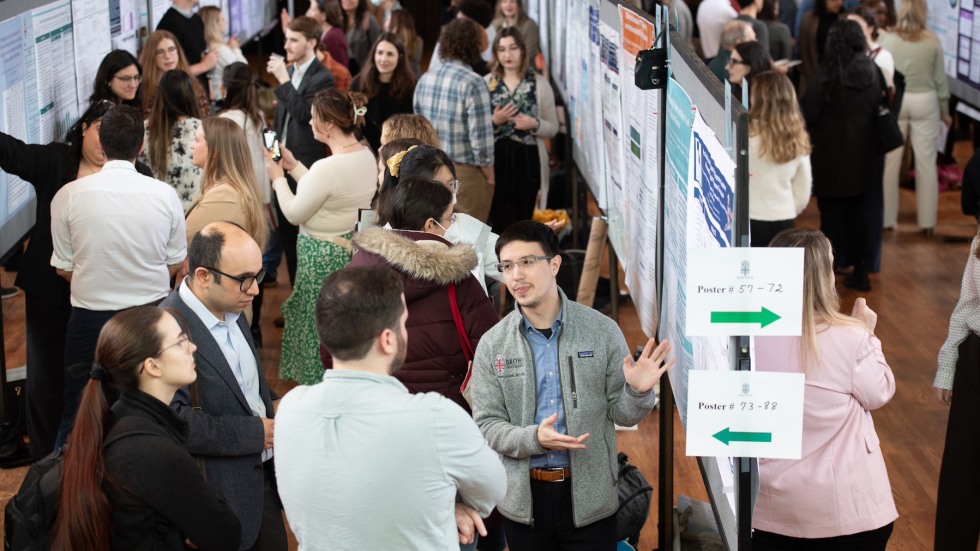
(Photo credit: Peter Goldberg)
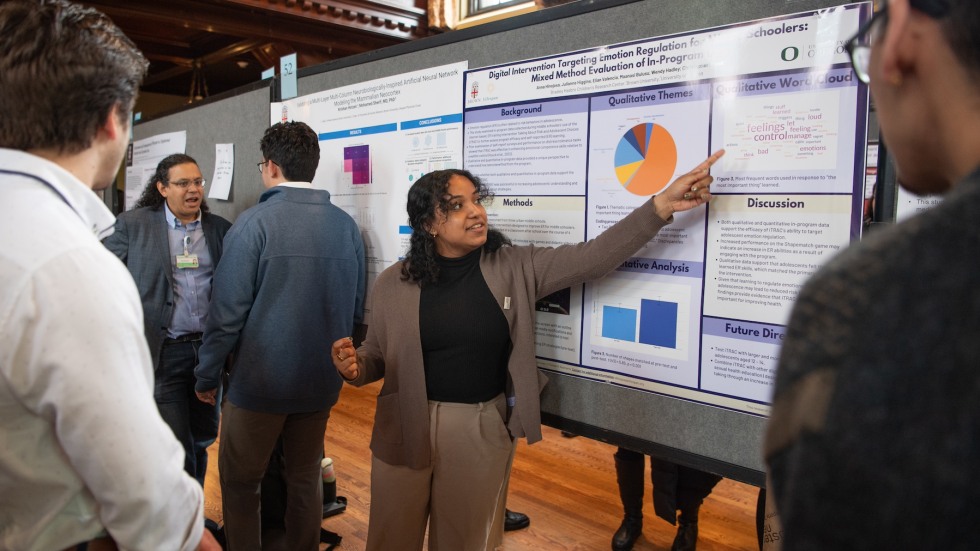
(Photo credit: Peter Goldberg)
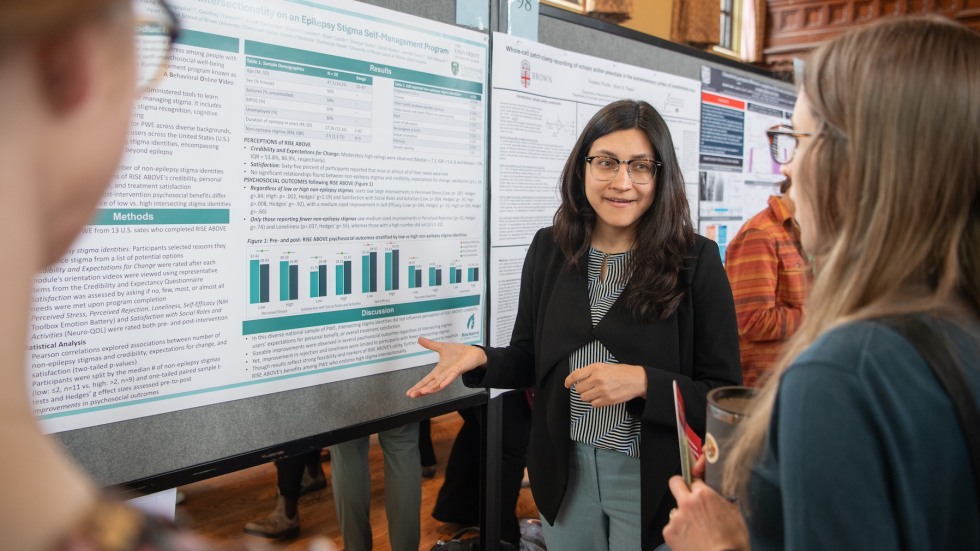
(Photo credit: Peter Goldberg)
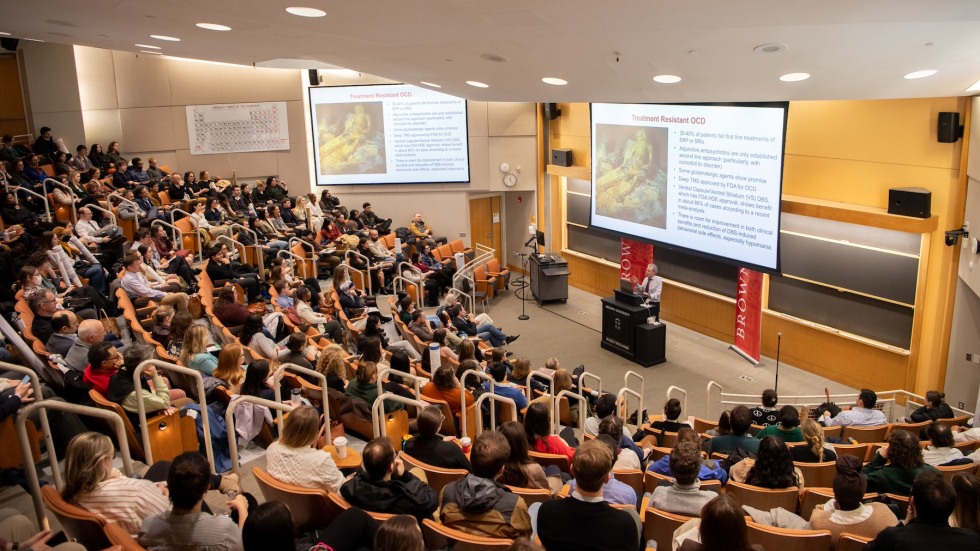
(Photo credit: Peter Goldberg)
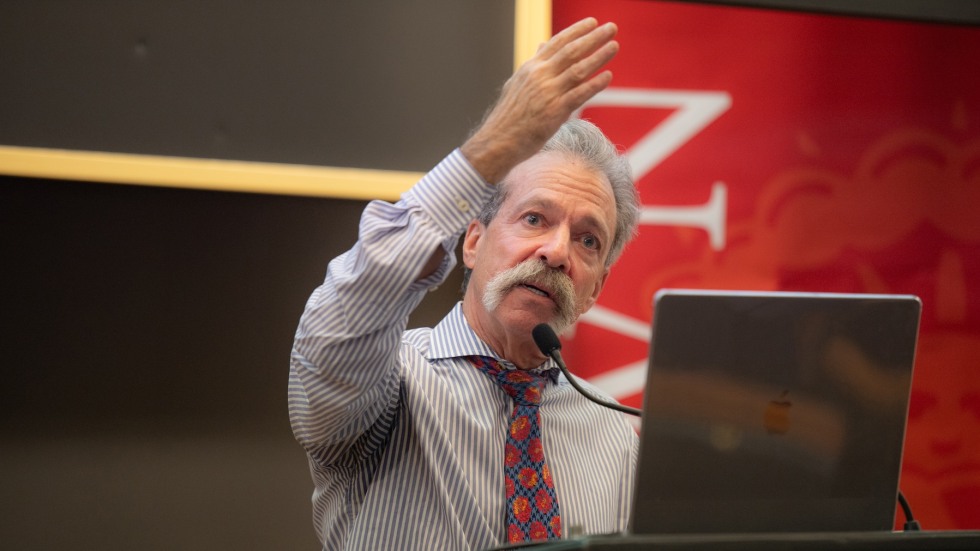
(Photo credit: Peter Goldberg)
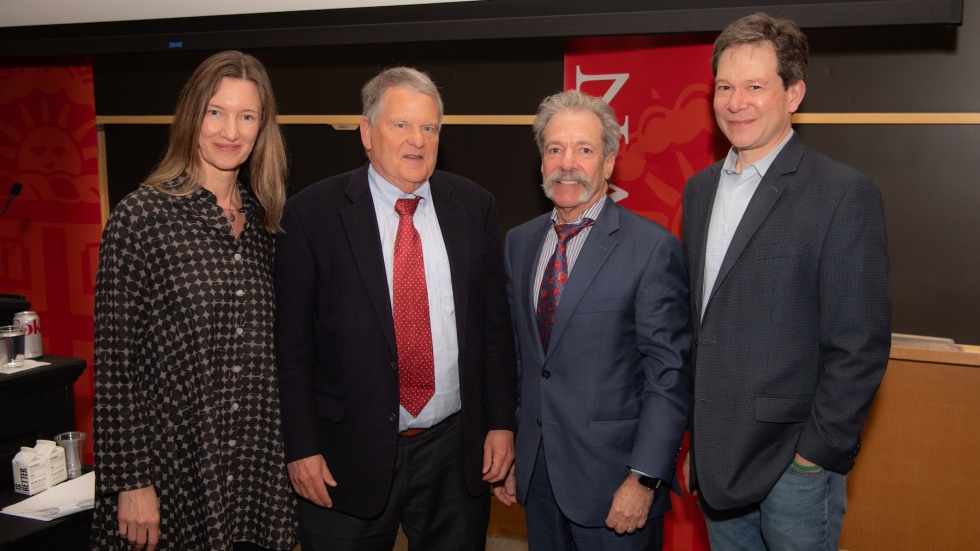
(Photo credit: Peter Goldberg)
In brain science they say that neurons that fire together, wire together.
The same principle applies to the throngs of faculty, trainees, graduate students, undergraduates, and research staff who gathered on Brown's campus for the 26th Annual Mind Brain Research Day, hosted by the Department of Psychiatry and Human Behavior and the Carney Institute for Brain Science on March 28. The day's poster session, featuring the work of 130 researchers, sparked animated conversations among presenters and attendees, forging paths to new collaborations. Wayne Goodman, M.D., of the Baylor College of Medicine, delivered a keynote address on deep brain stimulation for intractable OCD that inspired an array of questions from different disciplinary angles.
So what does Mind Brain Research Day's busy circuitry of ideas look like? Let's peer through the microscope at a few of the connections ignited that day.
Different languages, similar dilemmas
Linda Guzman, Ph.D., a clinical psychology postdoctoral fellow, hung her poster on one side of Sayles Hall. Research assistant Johnny Lu hung his on the other. But once Mind Brain Research Day kicked off and people poured through the corridors of posters, there was no standing still for Lu. He wandered the maze of ideas and found himself lingering in front of Guzman’s poster: A study on the under-detection and under-treatment of depression in Spanish speakers. Funny enough, Lu had been wondering about similar barriers for Mandarin speakers. He had noticed, for example, that common Mandarin expressions for symptoms of mood disorders have no equivalent in English-language assessment tools. How could those linguistic gaps affect their diagnosis? Guzman’s mixed methods approach pointed to one route for finding out.
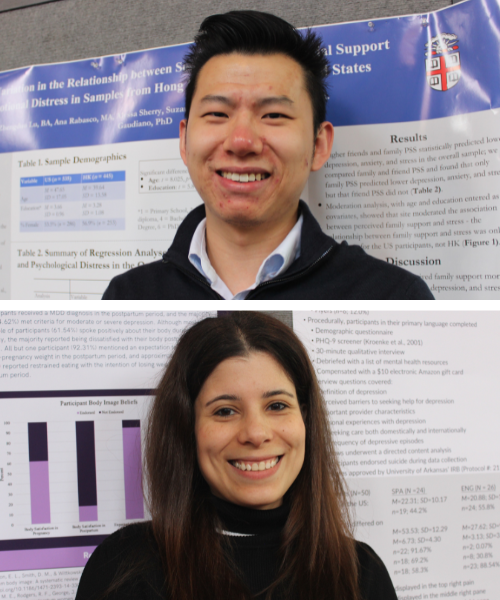
A pathobiologist finds their compass
Pathobiology graduate student Melanie Ortiz Alvarez de la Campa presented research examining the relationship between early life stress, the gut microbiome, and anxiety in mice. Ortiz Alvarez de la Campa came into Mind Brain Research Day thinking they might want to explore the metabolic mechanisms of that relationship at some point in the future. After multiple passers-by asked about just those mechanisms, Ortiz Alvarez de la Campa became convinced that, yes, they should steer their research in the direction of all that curiosity. Give the people what they want!
That drug does what?
Kayla Giorlando, a research project director at Rhode Island Hospital, has been researching how marketing can affect the uptake of PrEP, a drug used for the treatment and prevention of HIV. A huge piece of the puzzle is stigma. Lucky for Giorlando, just across the aisle at Mind Brain Research Day, research assistant Molly Lawrence was presenting her research on digital dementia assessments. Lawrence noticed Giorlando’s poster and remarked that one of the antiretroviral drugs used in PrEP is currently being studied in a clinical trial for Alzheimer’s. A light flashed in Giorlando’s head: An alternate use for a PrEP drug could have major implications for stigma. So how did Lawrence know about the clinical trial? She helped run it, of course.
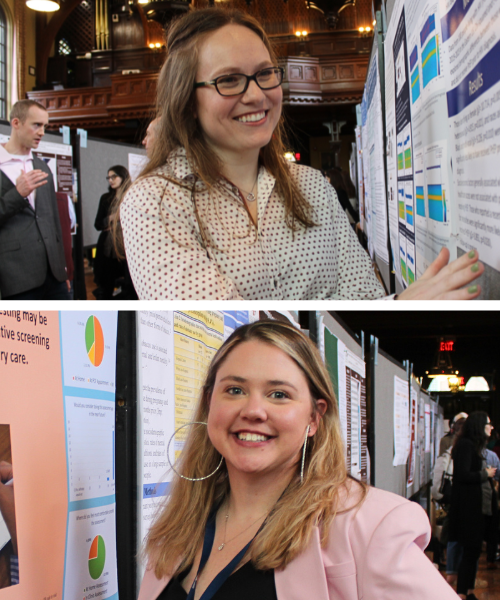
2024 Mind Brain Research Day Award Winners
Diversity Research Award
1st place: Kayla Sall, Ph.D.
Weight Bias Internalization during Pregnancy: An exploration among Black Women
View poster
2nd place: Yunshu Yu, B.S.
Outness to Different Social Groups: Associations with Minority Stress, Mental Health Outcomes, and Well-being in a Sample of Sexual and Gender Minority Youth
View poster
Undergraduate Student Award
Winner: Elijah McCray
A Novel Glucocorticoid Score Predicts Behavior Problems in Children Born Very Preterm
View poster
Graduate/Medical Student Award
Winner: Melanie Ortiz-Alvarez de la Campa, B.S.
I’ve Gut a Feeling: Effects of sex and gastrointestinal location on microbiome-induced anxiety in an early-life stress model
Read paper on microbial component
Research Assistant Awards
1st place: Megan Caruso, B.S., B.A.
Revealing a Novel Cerebrovascular Signature of Alzheimer's Risk: A Comparative Cross-Sectional Study of Structural MRI and Amyloid PET Biomarkers
View poster
2nd place: Rachna Iyer, B.A.
Family dysfunction predicts hopelessness in psychiatrically hospitalized adolescents experiencing maltreatmentc
View poster
Clinical Psychology Resident Awards
1st place: Emily Beckmann, M.S.
Exploring caregivers’ role in oral surgery among transitional aged-youth
View poster
2nd place: Laura Laumann, M.S.
High rates of hookah use in pregnancy and preconception: Prevalence and correlates of an oft-overlooked tobacco product
View poster
Postdoctoral Awards
1st place: Allison Stumper, Ph.D.
Does Estrogen Withdrawal Predict Premenstrual Exacerbation of Depression and Anxiety Symptoms?
View poster
2nd place: Natalie Fenn, Ph.D.
Assessing Mental Health and Substance Use among Sexual and Gender Minority Populations Presenting to a Sexual Health Clinic
View poster
MD Resident & Fellows Award
Winner: Brandon Lew, M.D., Ph.D.
Who Should Receive Extension of TMS Depression Treatment? A Retrospective Analysis of Response Conversion
View poster